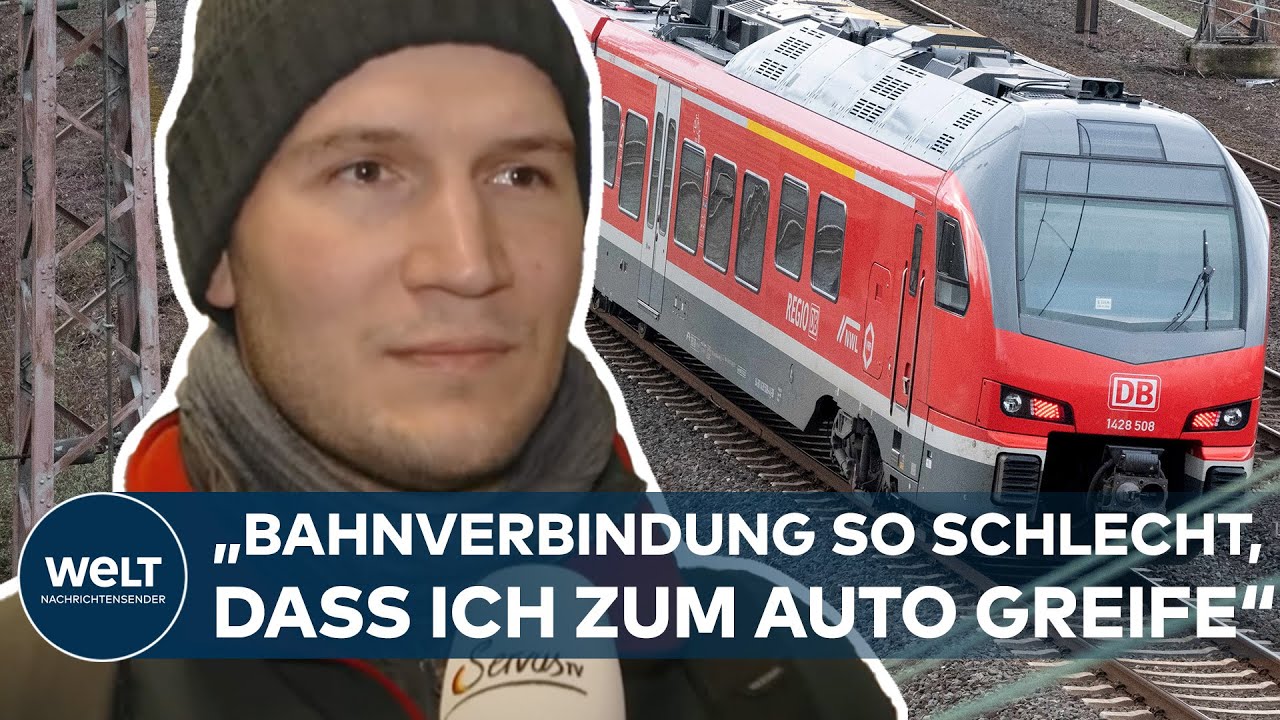Deutschlandticket: Das 49-Euro-Ticket Kommt - Aber Der Streit Um Die Finanzierung Bleibt
Unleash Your Creative Genius with MuseMind: Your AI-Powered Content Creation Copilot. Try now! 🚀
Introduction
The popular 9 euro-ticket has now been replaced by the 49 euro-ticket, but the transition was far from smooth. The so-called "deutschlandticket" can now be purchased for the first time, but there are still many challenges to overcome. Funding is not yet secured, and public transportation is still a matter for individual states. As we all know, each state has its own unique ideas and preferences, leading to a patchwork of transportation systems.
The Reality of Commuting
Take a stroll through Berlin Hauptbahnhof, and you'll witness thousands of commuters getting on and off trains every day. This station is part of the busiest commuter route in Germany, with over 40,000 people traveling between Potsdam and Berlin daily. These are the people who are supposed to benefit directly from the 49 euro-ticket. However, even they are not always at ease with the train system. Sometimes, the trains don't function as well as they should, causing frustration among passengers. I even asked the information desk if I could trust the train, but they were just as clueless as I was. They simply said, "Well, it should come." It's truly unbelievable.
The Ups and Downs of Train Travel
While the new ticket may make train travel more affordable, it remains to be seen whether the railways can handle an increase in passengers. Delays are unfortunately the norm, with only 65% of trains being punctual last year. If we were to give the train a grade, it would be a solid six, which is far from satisfactory. Christian Böttger, a railway expert, would probably give it a similar rating. To truly improve the system, an investment of 50 billion euros is needed for the renovation of the railways. However, only a meager two billion euros is currently allocated. So, what does the 49 euro-ticket really bring to the table?
Chaos and Criticism
Unfortunately, the distribution of funds and the financing of transportation companies are not yet secured. This raises concerns about potential chaotic situations. Furthermore, this project will cost nearly five billion euros of taxpayer money each year, without providing any significant transportation or social benefits. Another point of criticism is that rural areas are often poorly connected to public transportation, rendering the ticket useless for many residents. Additionally, the ticket will only be available in digital form, which is not user-friendly for seniors and others who may struggle with technology. Each state will also have its own set of exceptions and special regulations, adding to the complexity.
Overcrowding and Potential Consequences
While the 49 euro-ticket aims to attract more passengers, it may actually lead to overcrowding on certain routes. The average capacity utilization of public transportation is already at around 25 percent, and some commuter routes into major cities are already overloaded. This will only increase the pressure on the system, making it even more difficult for people to board trains. In the end, the elderly and the weak will be the ones left behind, unable to cope with the overcrowding. On the other hand, those who choose to drive their own cars may face traffic jams and hefty fuel bills. In a city like Berlin, where traffic is already a nightmare, the train seems like a viable alternative. On average, Berlin drivers spend 71 hours stuck in traffic each year.
The Perspective of the People
To get a sense of how people feel about the new ticket, we asked commuters if they would consider switching to the train. The responses were mixed. Some said they would continue to drive because of the poor train connections, while others were open to the idea of using the ticket. The 49 euro price tag seemed reasonable to many, especially for shorter distances. However, concerns about train reliability and overcrowding were also raised. It remains to be seen whether the deutschlandticket will truly encourage more people to choose the train over other modes of transportation.
Conclusion
The introduction of the 49 euro-ticket is a significant change in Germany's transportation landscape. While it offers the potential for more affordable train travel, there are still many obstacles to overcome. Funding, distribution of resources, and regional variations all contribute to the complexity of the system. The ticket may not be a one-size-fits-all solution, as it may not benefit those in rural areas or those who struggle with technology. Additionally, overcrowding on already congested routes could lead to further challenges. Only time will tell if the deutschlandticket will truly revolutionize train travel, or if it will be just another bump in the road.

Related Recaps
- CRAXY (크랙시) "NO LIMIT" MIXTAPE VIDEO
- Common Medical Emergencies - Confidence in Managing Emergencies (CME)
- What If Month: Trent Didn't Fall For Heather's Plan
- Convenience Store BLACK PINK Food Alphabet Lore HP vs FQ MUKBANG! | Alphabetlore ANIMATION | ASMR
- ‘Look At The City Of Chicago’: GOP Lawmaker Points Out Lightfoot Lost Re-Election Due To High Crime